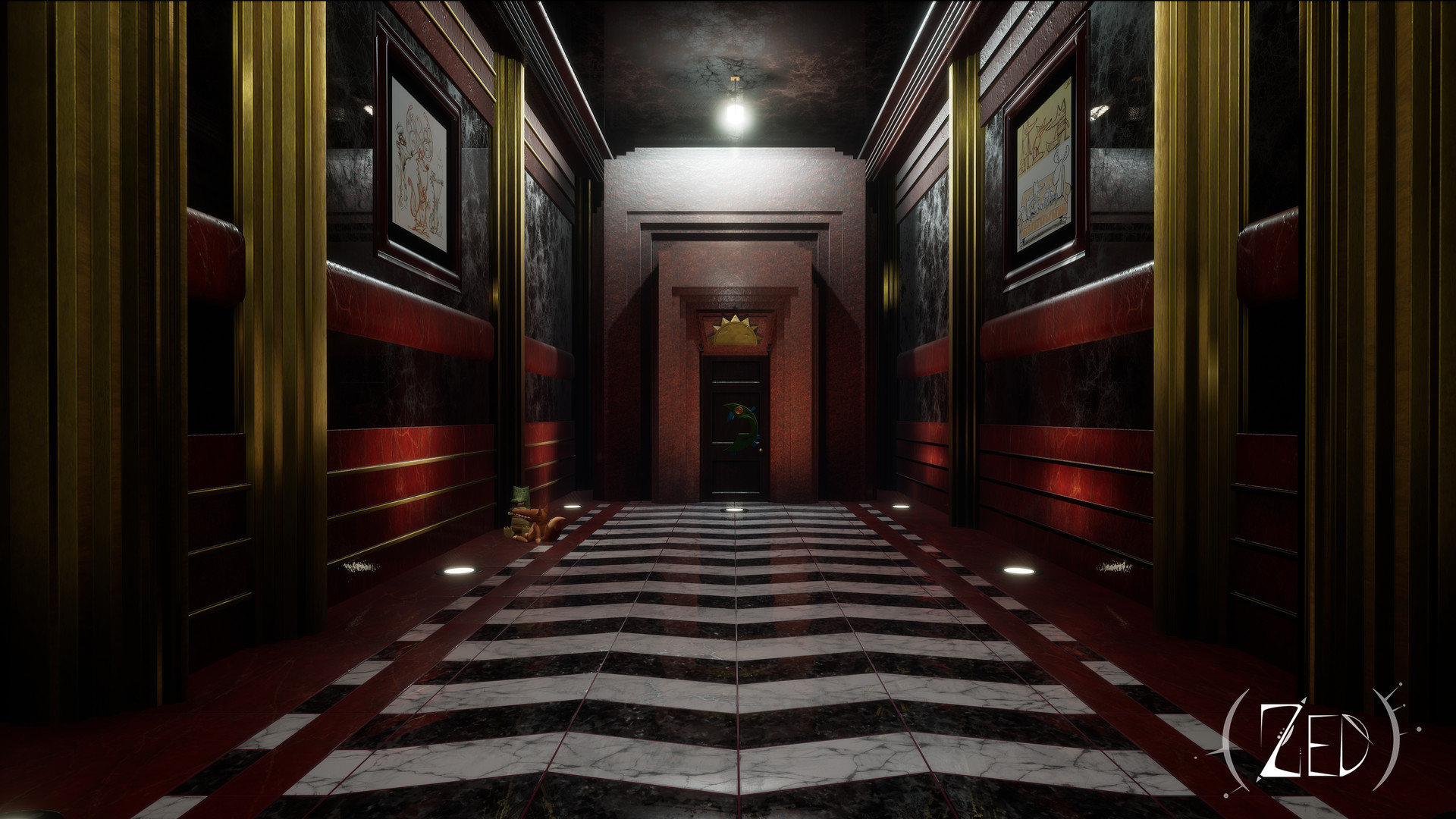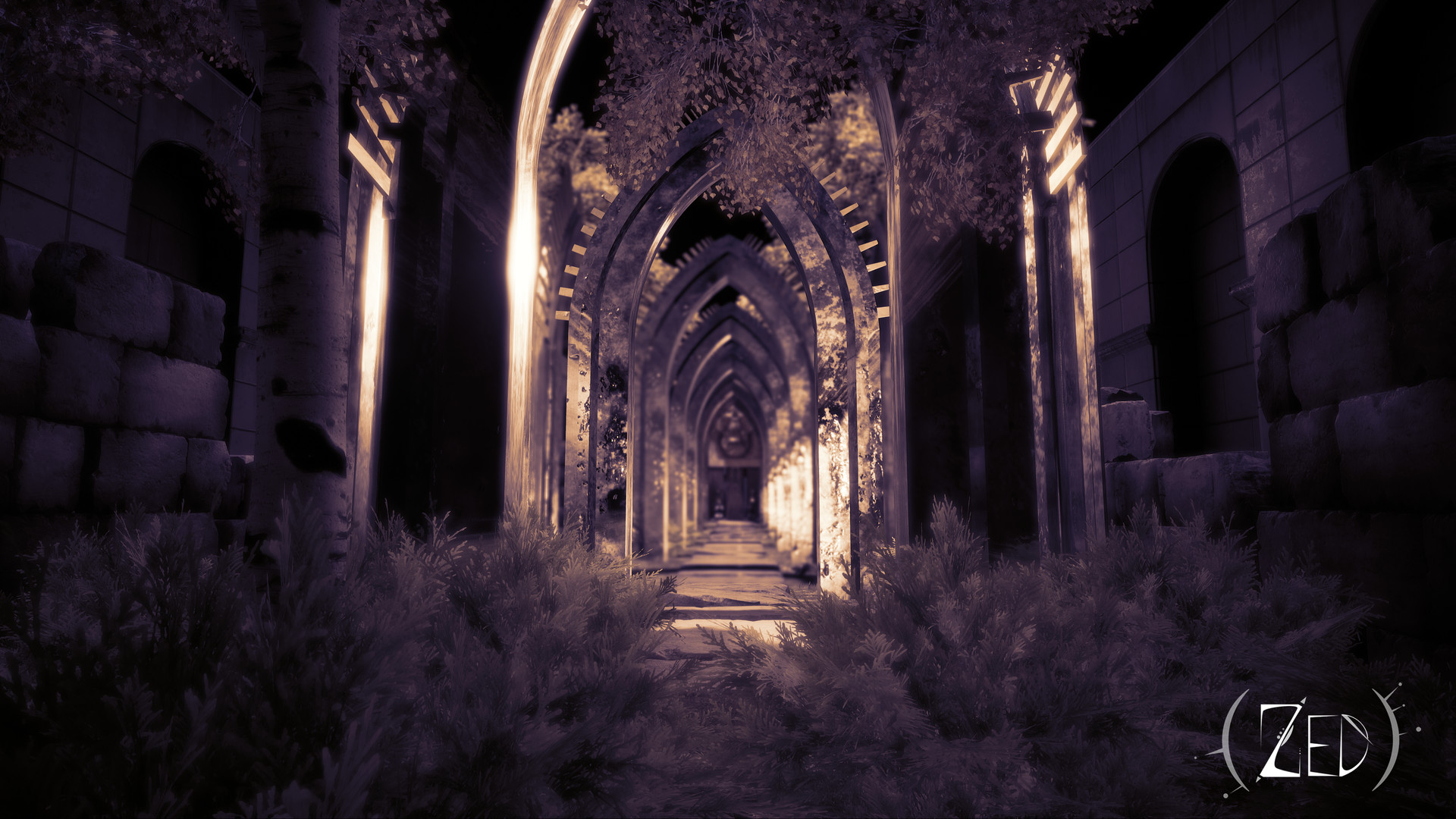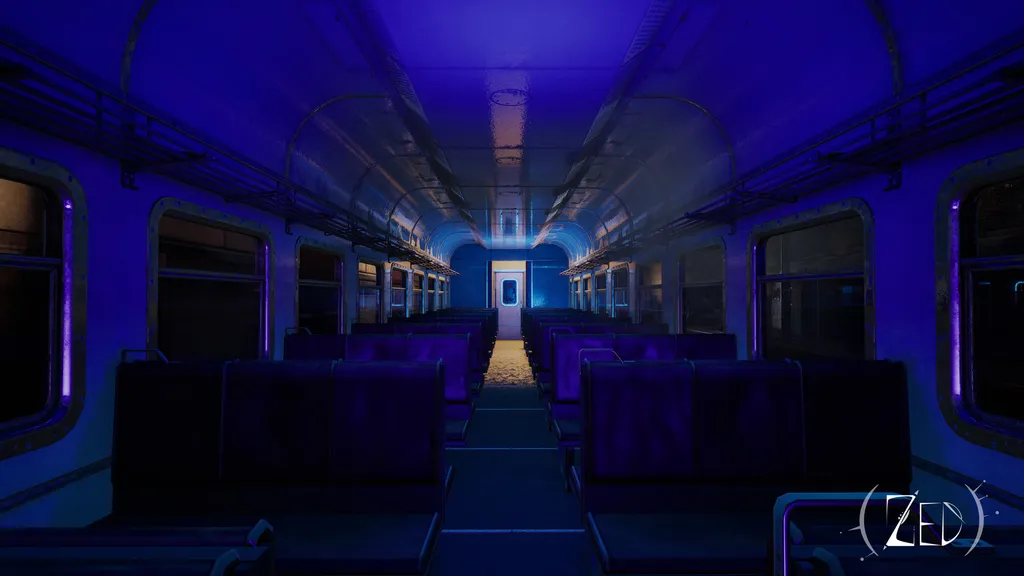The mind is a tricky thing, and when it begins to fade, it can be a heartbreaking and extremely difficult thing to deal with. But what would happen if you could step into the mind and assist in finding seemingly lost memories? This is what Chuck Carter of Eagre Games and Cyan Ventures, the developer and publisher, respectively, hope to explore in their upcoming title ZED. Last month at PAX East, we were able to give ZED a try, and jump into the mind in an effort to fix some broken memories.
As mentioned earlier, ZED deals with the complexities that arise when your mind begins to fail you. In it, you take a trip inside the mind of an elderly artist who is suffering from dementia, and are tasked with solving puzzles in an effort to piece together his memories as he attempts to create a final book for his granddaughter before he passes on.
Starting out, ZED places you in a recreation of what one would assume is the artist’s home. As you explore, a voice over begins to explain the complexities of the mind, and the three aspects that it is comprised of. You’re free to explore and check out the various rooms and items within, but once you leave the home, things truly begin. Soon after leaving the room, I was brought into a gigantic hallway filled with doors that I assume are meant to be other memories. It’s an interesting way to present memories, with the hallway containing many twists and turns in an effort to showcase just how vast and unknown the mind is.
The art direction in ZED is incredibly detailed and clearly the main draw of the game. Not only do the inner workings of the mind feel like something straight out of Inception, but some of the locations you’re taken to are incredibly well done visually.
After moving through the hallway and into another room, the puzzle solving aspect of ZED is presented to you. The puzzles I saw in ZED are hardly anything too difficult, with many of the sections in the demo consisting of doing simple tasks such as organizing pictures in the right order. Instead of focusing heavily on challenging puzzles, ZED instead aims to combine the narrative adventure aspects of its world to tell a better story by taking you through different memories.

In terms of gameplay, ZED doesn’t offer much in the way of virtual reality innovation. You’ll find yourself roaming through various memories and solving puzzles, listening to dialogue and getting more and more of the story pieced together as time goes on. What ZED lacks in active gameplay, though, it makes up for in atmosphere, which is where the VR competent really shines. Getting to take your time and get up close and personal with some of the objects in the game add a deeper feeling to them that would otherwise be missing. Putting yourself inside a virtual mind that is falling apart seems much realer once you’re inside of a VR device. With nothing happening around you but the game, you truly feel like you’re inside your own mind at times.
When I spoke to Chuck Carter – President and Creative Director at Eagre Games – at PAX East, he said the inspiration behind the game came from a person place. A former mentor of his struggled with dementia, and by the time Carter had visited him, his mentor had trouble recognizing him. It was this encounter that led Chuck to create ZED, and it’s clear that a huge amount of care has been put into crafting the world and story.
As you make your way through the demo, you visit various memories, some of which are straight out of the artist’s life, and others that are simply environments that seem pieced together by various memories. Throughout these areas, you’re free to explore and examine nearly everything, including comic books, baseball gloves, and even random books strewn about. Special items can be picked up and stored away, and are written about in a journal that you can access that helps piece together the story your artist is trying to tell.
While the demo for ZED only lasted about 15 minutes, I was told that the full game should take about 6-8 hours to complete. After finishing the game, you’ll also be able to fully read the book that the artist creates, as Carter told me that the artists behind the game had taken some time to actually create a real children’s book.

Overall, I’d say that ZED will accomplish what it seems to be aiming to do. The puzzle solving and gameplay isn’t too complex, but the narrative, art design, and feel of the game are all incredible. It’s not easy to take a subject matter like dementia and make it into something that people want to explore, but ZED seems to do just that.
ZED is slated to launch sometime this year, and will support both the HTC Vive and Oculus Rift, as well as being playable on a standard PC without VR similar to Obduction.


























